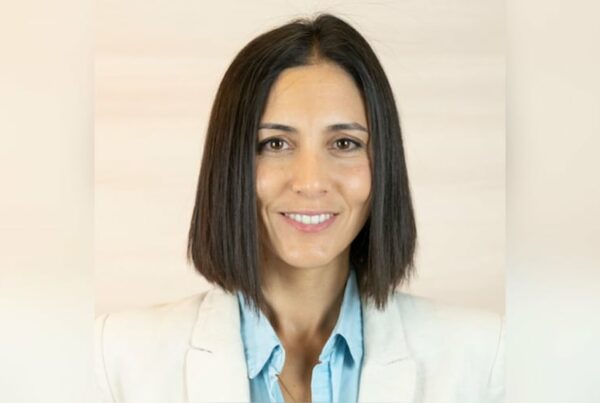
Read more: Chaucer, Moody’s join up for ESG scorecard
“We fundamentally believe that insurance is providing societal good,” he said. “I think it gets a bad press at times, but we are there as a force of good, we’re here to step in when things go wrong and to help. And the way we can influence and make a difference is to help incentivise our counterparties to move forward and help the transition [towards sustainability]. And there are other players in the market who have similar views to us, so I think there’s definitely a migration towards that way of thinking.”
Tighe highlighted that Chaucer’s recent collaboration with Moody’s was an organic extension of the strong relationship that already exists between the firms across multiple aspects of the group. In early conversations about Chaucer’s ESG journey, it was realised that the big challenge the market faces is getting reliable data from counterparties in order to accurately assess ESG risk.
“We identified you’d have to go to 10 to 15 different providers to get the different type of metrics you need to really understand the ESG profile of your counterparties,” he said. “When talking to Moody’s it became clear they have an extremely large database of information on a lot of companies.”
In addition to the wealth of data that Moody’s can provide across all these companies, it became clear from Tighe’s conversations that the risk management firm is committed to ESG and had an ethos heavily aligned with Chaucer’s. That ensured both parties were clear in their vision for what they wanted to achieve, he said, and underlining that is the ambition for real change.
“We want to help the whole transition,” he said. “We want to work with partners, we don’t want to walk away. We don’t believe in walking away from partners because we believe real change can be driven by us helping the people we work with moving towards a more sustainable future. We want to enable that and help that, and the way to do that is to use this scorecard to identify gaps, to bring those to our [partners’] attention and to help them on that journey.”
While accepting that there are certain things Chaucer just can’t do, he said, the group is determined to provide its insight and expertise across the entirety of the ESG spectrum – not limiting its remit to the ‘E’ of this concern that garners so much attention. The firm wants to help companies become more sustainable as it believes that those companies will be around for a lot longer.
This view was shared by Moody’s, he said, and so the scorecard has been applied across the entirety of the group. Chaucer wants to apply the scorecard on every single counterparty it’s working with, across both its underwriting operations and its investment portfolio. Looking at the wider market, Tighe said, there’s a maturity curve among which businesses are ready for this and which are more hesitant to embrace what it means.
However, he said, the demand for such tools is clearly there and growing all the time.
Read more: Chaucer introduces dedicated renewable power team
“We get a lot of questions from our brokers and reinsurers on this,” he said. “The market is definitely moving that way, and our customers are expecting this from us now. It’s going to be part of the criteria of how an insurer chooses who they place their business with now and who they decide to go with.”
In addition to how ESG is rapidly becoming a deciding factor in how insurers choose their partners going forward, having the right sustainability emphasis will also prove integral in the war for great talent going forward, Tighe said. So, it’s integral to how a business evolves and grows, which is why it’s so important that everyone across an organisation is brought into the process – from the top down.
Chaucer has been very lucky in that it has had buy-in from the very top from day one, he said, as CEO John Fowle is the sponsor of this project and has really driven it forward. The entire C-suite has thrown its weight behind the move and is fully embedded in the ESG process, which he believes is critical to the success of such an endeavour.
“Collaboration is an absolute necessity in managing ESG risk,” he said. “Our opinion is that insurance companies can’t rely on a third-party view of ESG risk. We need to have our own opinion of risk and to do that we need to collaborate with the right partners and access the information and data to make these decisions and to move forward.
“You’ve got strength in numbers, so by collaborating with a company like Moody’s we are creating something that we know has the right fundamentals behind it, and the scale that we think will be a game-changer for the insurance market, and we think will be a positive force to move the transition forward. Because our entire goal with this is to help with the transition and to push it forward – and to do that we need to partner and to collaborate as a market.”
Read more: Chaucer names insurance head
Tighe and his team would love to see the scorecard become the tool of choice and to promote further collaboration across the insurance market. He hopes that the rest of the market will take up this mantle and look to build their own balanced scorecard in a bid to continue to move the transition to sustainability forward. The beauty of this tool, he said, is that it is truly flexible and will continue to evolve and grow in anticipation of the requirements of the wider market.
“I don’t want it to be reactive, I’ve always wanted it to be proactive and, while at times we will have to be reactive, it has been developed with innate flexibility built into it,” he said. “It has been a real labour of love for me, and something I’ve put a lot of time into. I’m delighted the Chaucer team have bought into it as well and put so much time into it. It’s great that it has been recognised and taken up…
“Now we just need to keep pushing forward, I don’t want to stand still. This has never been about ‘one and done’ – that’s not it, it’s not how ESG works. We’ve got it done, but now we’re going to move forward and keep pushing the envelope further. Because as soon as you stand still you fall behind, and that’s not our aim on this.”




